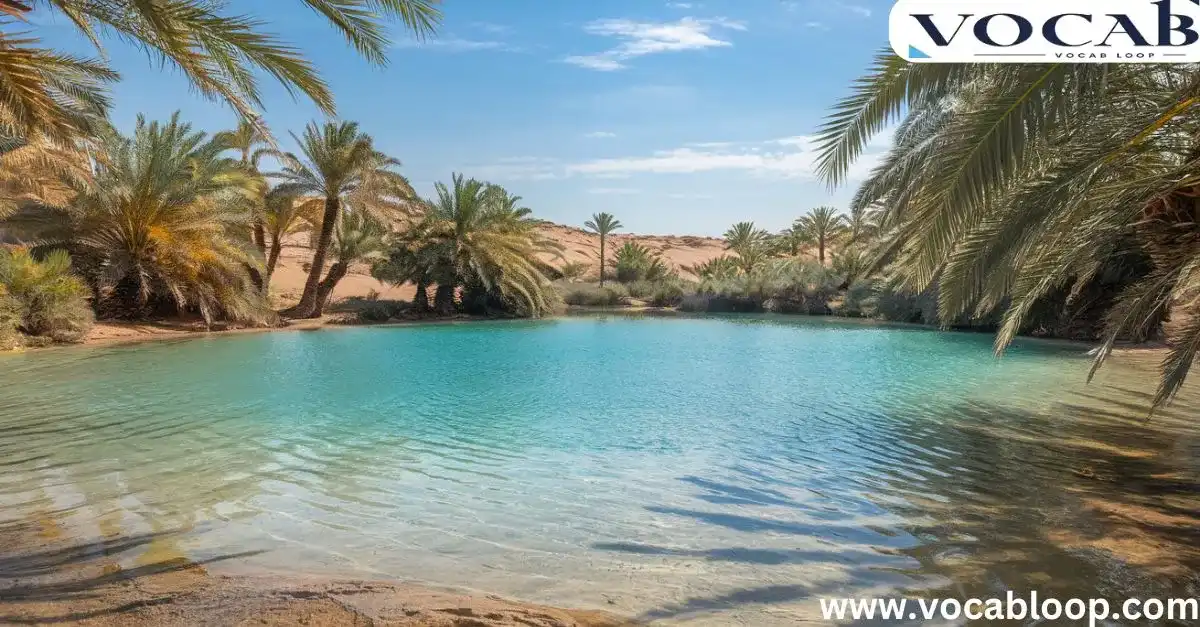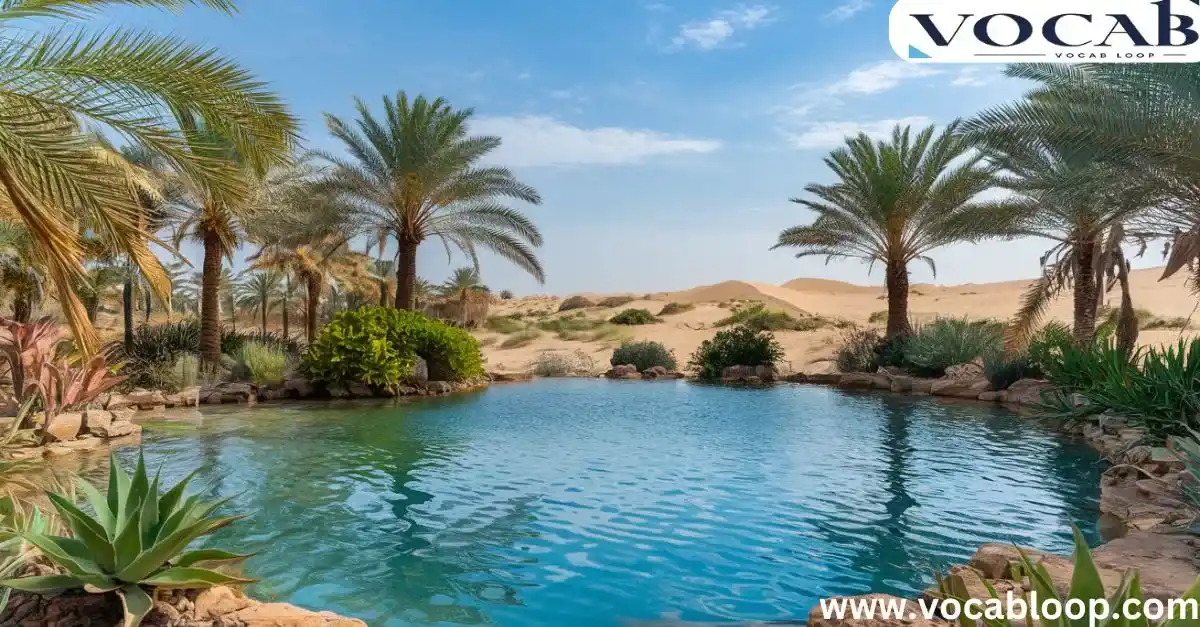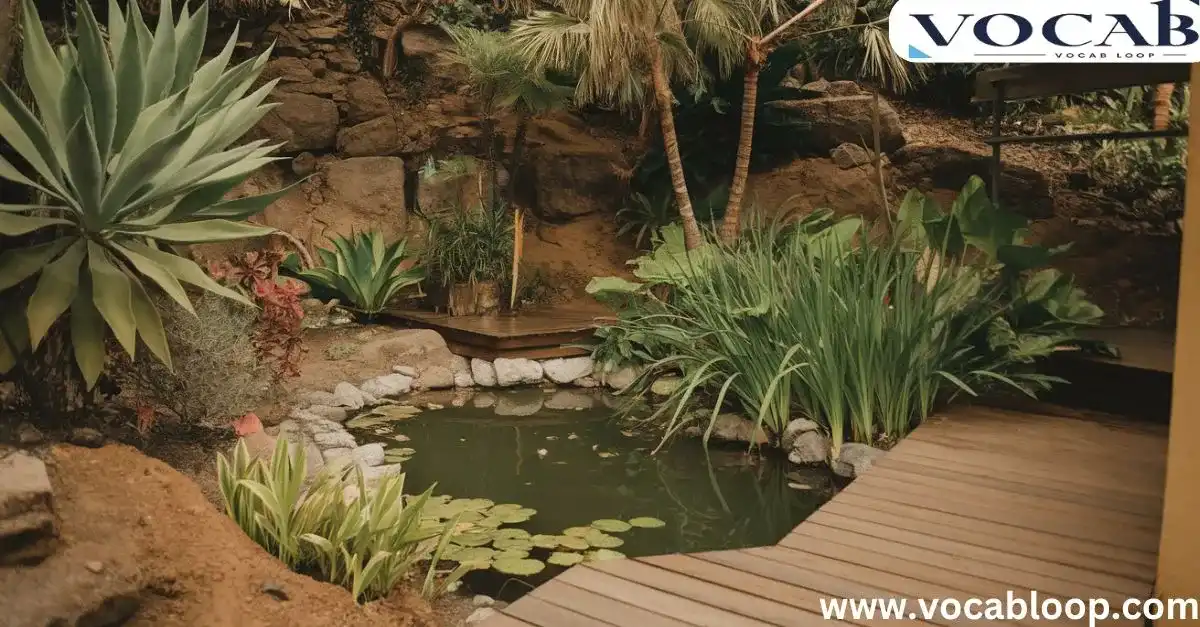The English language often presents fascinating challenges in word usage, and the plural of oasis stands as a prime example. This term, originating from ancient civilizations and carrying profound meaning, continues to intrigue language learners and native speakers alike.
Whether you’re describing a literal water source in a desert or metaphorically referring to a peaceful sanctuary in chaos, understanding the correct usage of oasis and its plural form oases is crucial.
Why Confusion About The Plural of Oasis?
The plural form of oasis often puzzles English speakers because it doesn’t follow the typical pattern of adding ‘-s’ or ‘-es’ to form plurals. Instead, it undergoes a unique transformation that reflects its ancient origins. This irregularity stems from its journey through multiple languages before reaching modern English.
Many people mistakenly write “oasises,” following the common English plural pattern. However, understanding the word’s Greek and Latin roots helps explain why its plural form is special. This knowledge not only helps with correct usage but also offers fascinating insights into how language evolution works.
Is the Oasis Word Correct?

The word oasis stands as a perfectly correct and widely recognized term in the English language. Its usage spans centuries of literature, scientific texts, and everyday communication. The term has evolved beyond its literal meaning to encompass both physical and metaphorical sanctuaries.
Writers and speakers have embraced this versatile word, using it to describe everything from actual desert waterholes to metaphorical spaces of peace and tranquility. This flexibility has cemented its place in our linguistic landscape, making it an indispensable part of modern vocabulary.
Definition of Oasis
An oasis primarily refers to a fertile area in a desert where water exists either above or just beneath the surface, supporting plant and animal life.
However, the meaning has expanded significantly in modern usage. Today, it encompasses any place offering refuge or relief from difficult circumstances.
This broader definition reflects our growing understanding of what constitutes a sanctuary in various contexts. From urban gardens in concrete jungles to quiet corners in busy offices, the concept of an oasis has adapted to contemporary life while maintaining its core meaning of providing respite.
Quick Summary
The essential fact about oasis is straightforward – its plural form is oases. This transformation follows patterns seen in other words of Greek origin, such as crisis/crises and analysis/analyses. The change occurs within the word rather than simply adding letters to the end, reflecting its classical heritage.
Modern usage has embraced both forms, with the singular oasis describing individual havens and the plural oases referring to multiple such spaces. This understanding applies whether discussing literal desert springs or metaphorical sanctuaries in our daily lives.
What Does the Word “Oasis” Mean?
The meaning of oasis extends far beyond its traditional definition of a water source in an arid region. In its literal sense, an oasis represents a fertile spot in a desert, typically featuring water and vegetation. However, contemporary usage has broadened significantly to encompass any place offering refuge, peace, or relief from challenging circumstances.
Modern society has adopted this term to describe various situations and locations. From quiet parks in bustling cities to peaceful spaces in chaotic workplaces, an oasis represents any environment that provides comfort and restoration. This evolution in meaning demonstrates the word’s versatility and enduring relevance in our language.
Is Oasis Singular or Plural?

The word oasis is definitively singular, while oases serves as its plural form. This distinction matters greatly in both written and spoken communication. When referring to a single fertile spot or sanctuary, use oasis. When discussing multiple such locations or concepts, oases is the correct term.
Understanding this difference helps avoid common grammatical mistakes and ensures clear communication. The transformation from singular to plural reflects the word’s classical origins and adds a sophisticated touch to English usage.
How to Pronounce “Oasis”
The pronunciation of these terms differs slightly between their singular and plural forms. The singular oasis is pronounced as “oh-AY-sis,” with emphasis on the second syllable. The plural oases is pronounced as “oh-AY-seez,” maintaining the same stress pattern but changing the final sound.
| Form | Spelling | Pronunciation | Stress Pattern |
| Singular | oasis | oh-AY-sis | Second syllable |
| Plural | oases | oh-AY-seez | Second syllable |
Why the Plural is “Oases” and Not “Oasises”
The plural form oases reflects the word’s journey through ancient languages. Originally from Egyptian through Greek and Latin, it retained its classical plural formation. This pattern appears in many scientific and academic terms, where “-is” endings become “-es” in the plural form.
The transformation follows a consistent rule among words sharing similar origins. Understanding this pattern helps with learning other similar words in English, such as thesis/theses and crisis/crises.
Is Oasis Countable or Not Countable?

Oasis functions as a countable noun in English, meaning you can use it with numbers and in both singular and plural forms. This characteristic allows for precise descriptions of multiple locations or concepts. You can say “one oasis” or “several oases” depending on the quantity you’re discussing.
The countability of this word enhances its usefulness in both literal and metaphorical contexts. Whether describing physical desert springs or figurative sanctuaries, the ability to count these spaces adds clarity to communication.
Origin of the Word “Oasis”
The etymology of oasis traces back to ancient Egyptian, where it initially referred to specific fertile regions in the Libyan desert. The word traveled through Ancient Greek (όασις) and Latin before entering English. This journey through multiple languages and cultures enriched its meaning and usage.
The historical path of this word reflects the interconnected nature of human languages and the ways words evolve as they move between cultures. Its endurance through thousands of years speaks to its fundamental importance in human experience.
Synonyms for “Oasis” and “Oases”
“Oasis” (Singular):
- Haven: A peaceful place of safety
- Refuge: A shelter from danger or hardship
- Sanctuary: A sacred or protected space
- Paradise: An ideal or perfect place
- Retreat: A quiet place for rest
- Spring: A natural water source
- Waterhole: A natural pool of water
- Harbor: A place of shelter
- Eden: A place of pristine beauty
- Safe haven: A secure location
“Oases” (Plural):
- Havens: Multiple peaceful places
- Refuges: Various shelters
- Sanctuaries: Protected spaces
- Paradises: Perfect locations
- Retreats: Quiet resting places
- Springs: Natural water sources
- Waterholes: Natural water pools
- Harbors: Sheltered places
- Edens: Beautiful locations
- Safe havens: Secure spots
Example in Sentences

“Oasis” (Singular):
- Nature: The desert oasis provided water for the weary camels.
- Urban: Their rooftop garden became an oasis in the concrete jungle.
- Mental: The library served as an oasis of quiet in her busy day.
- Business: The small café was an oasis for remote workers.
- Emotional: His friendship became an oasis during difficult times.
- Physical: The swimming pool created an oasis in the summer heat.
- Cultural: The museum stood as an oasis of art in the city.
- Social: The community center became an oasis for Mature adults residents.
- Environmental: The preserved wetland acted as an oasis for wildlife.
- Personal: Her meditation room served as an oasis of tranquility.
“Oases” (Plural):
- Historical: Ancient trade routes connected various oases across the Sahara.
- Modern: Urban planners created green oases throughout the city.
- Natural: Several oases dotted the harsh desert landscape.
- Social: Coffee shops became oases for students during exam week.
- Cultural: Art galleries serve as oases of creativity in the neighborhood.
- Environmental: The city developed multiple oases to support local wildlife.
- Business: Coworking spaces act as oases for entrepreneurs.
- Educational: Libraries function as oases of learning in every district.
- Recreational: Parks provide oases of relaxation for city dwellers.
- Digital: Authentic content creates oases of truth in the social media landscape.
Practical Advice:
- Literal Use: Primarily refers to water sources in desert environments
- Metaphorical Use: Describes any peaceful or resourceful space
- Professional Context: Often used in urban planning and environmental discussions
- Personal Context: Frequently appears in discussions about mental health and well-being
- Social Context: Common in community development and social space planning
FAQs
Why isn’t the plural of oasis simply “oasises”?
The plural form follows its Greek and Latin roots, transforming “-is” to “-es” like crisis/crises and analysis/analyses.
Can I use “oasis” metaphorically?
Yes, it commonly describes any peaceful or refreshing place, not just desert water sources.
How do I remember the correct pronunciation?
Think of “oh-AY-sis” for singular and “oh-AY-seez” for plural, emphasizing the middle syllable.
Is “oasis” always countable?
Yes, you can count oases and use numbers with both singular and plural forms.
Does the meaning change between literal and metaphorical use?
While the core concept of “refuge” remains, the context determines whether it’s a physical or figurative sanctuary.
Conclusion
The plural of oasis enriches our ability to communicate effectively about both physical and metaphorical sanctuaries. This knowledge connects us to ancient linguistic traditions while serving modern communication needs.
Whether discussing literal desert springs or figurative havens, mastering the use of oasis and oases adds precision and sophistication to our language skills. Remember that language evolves, but some patterns, like this classical plural formation, endure through time, connecting us to the rich history of human communication.

Alex Hormozi is a seasoned blogger at Vocab Loop, known for his deep insights into language, vocabulary, and grammar. With years of experience in writing, Alex shares practical tips and effective strategies to help readers improve their linguistic skills and enhance their writing abilities.

